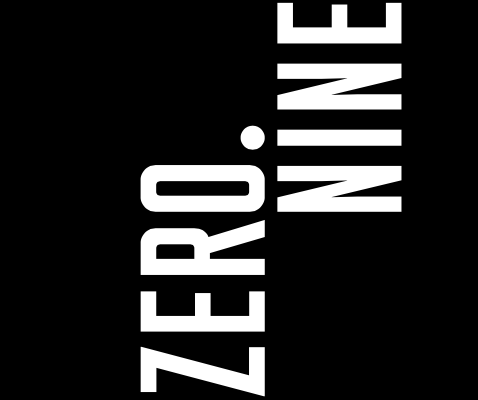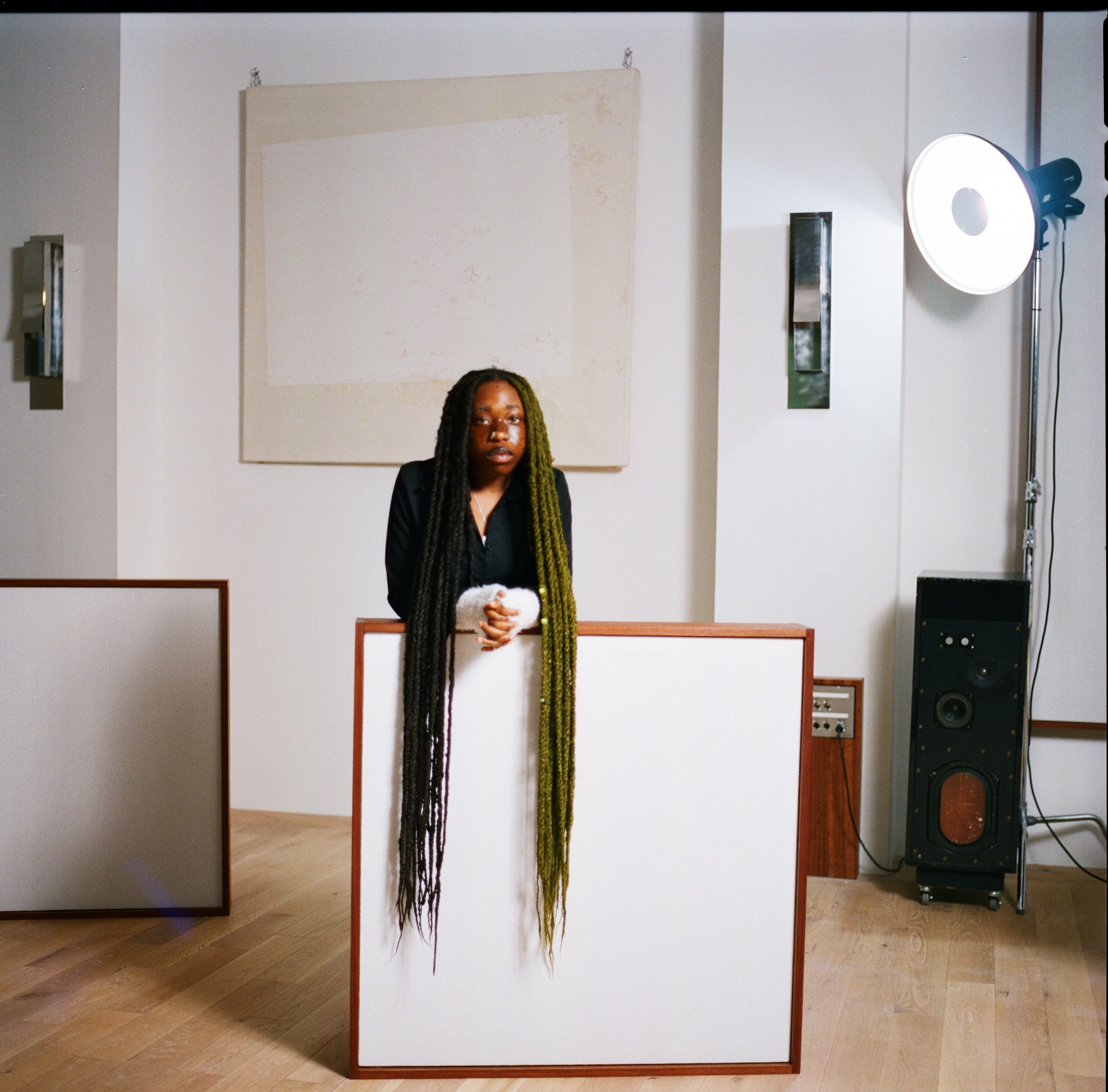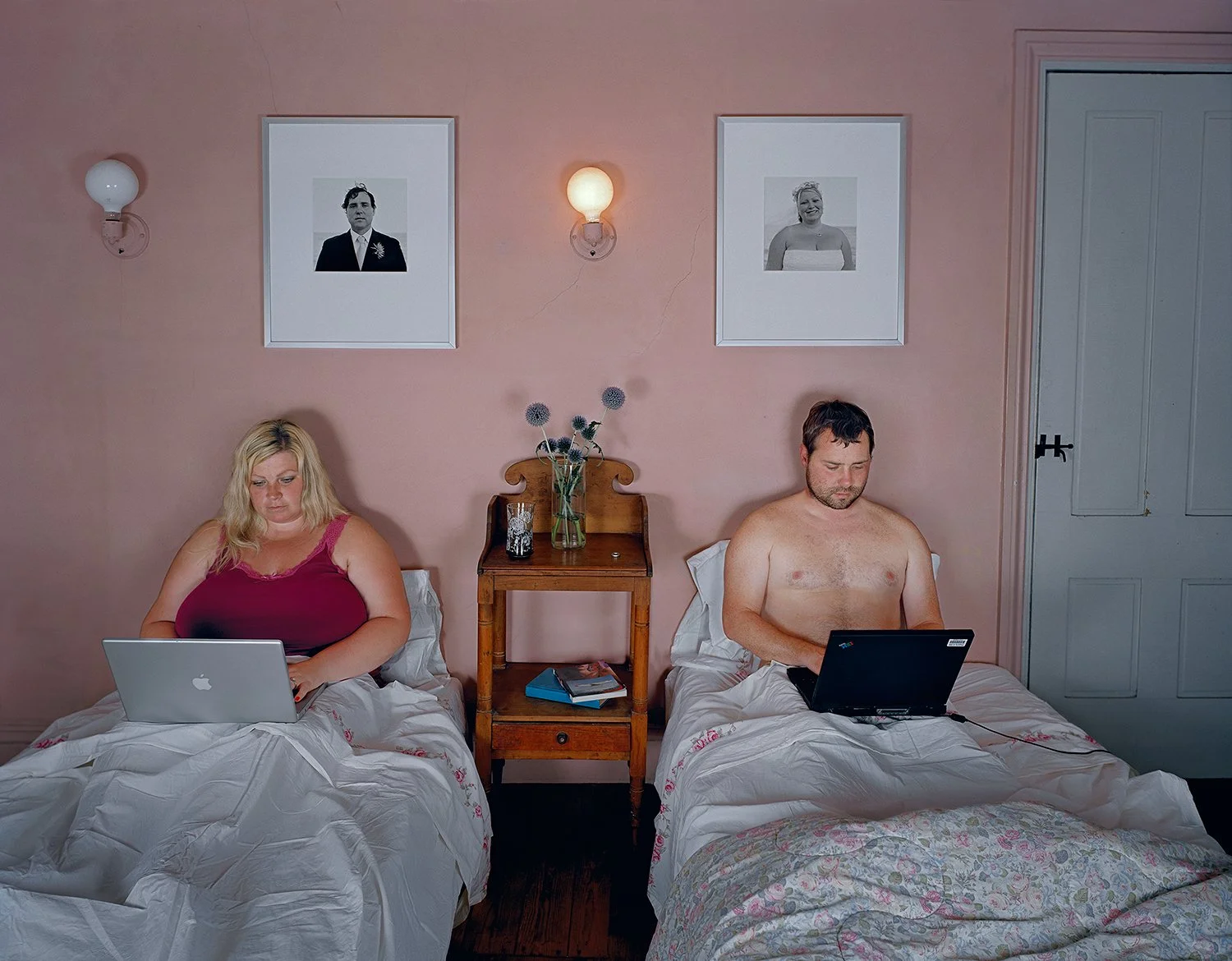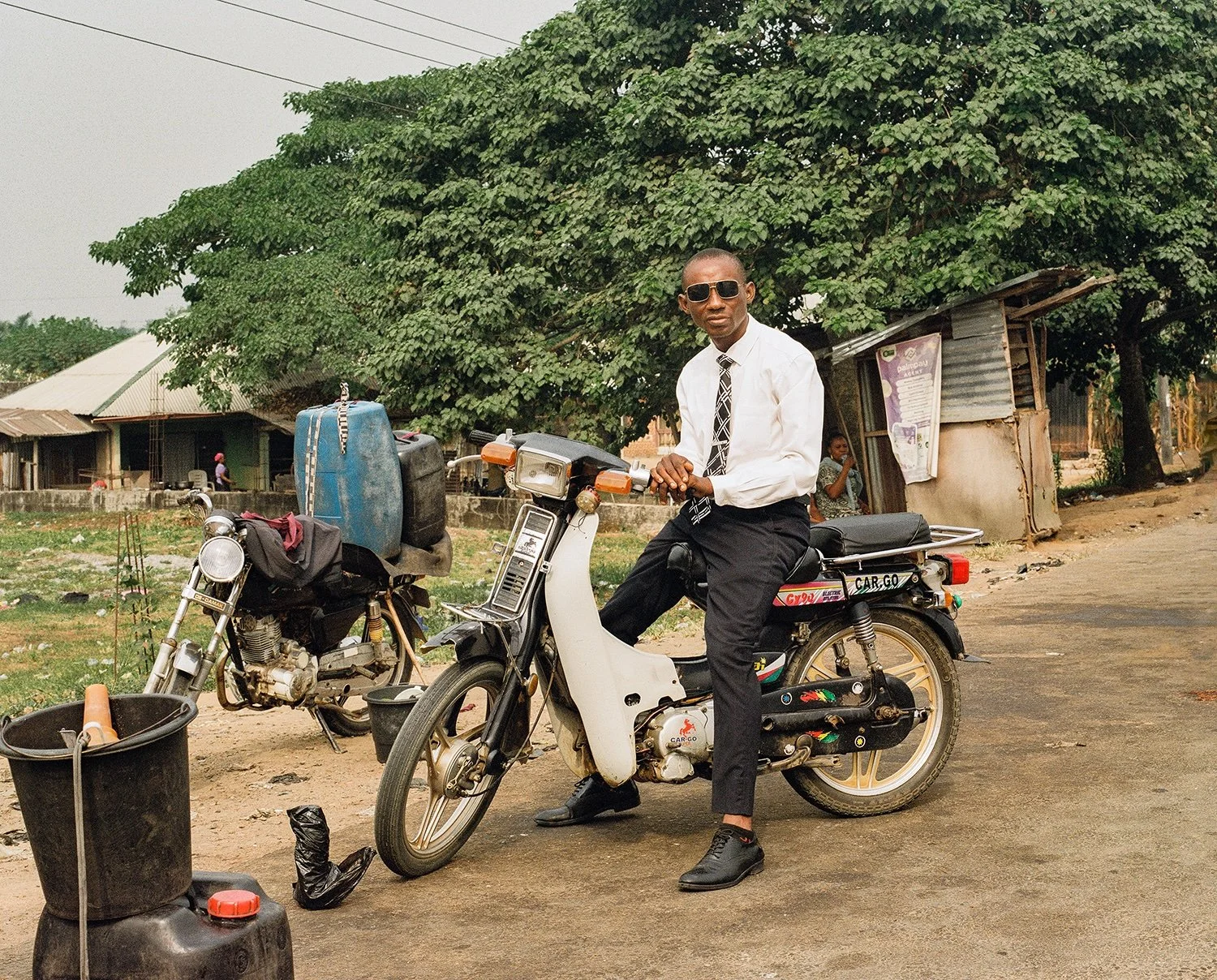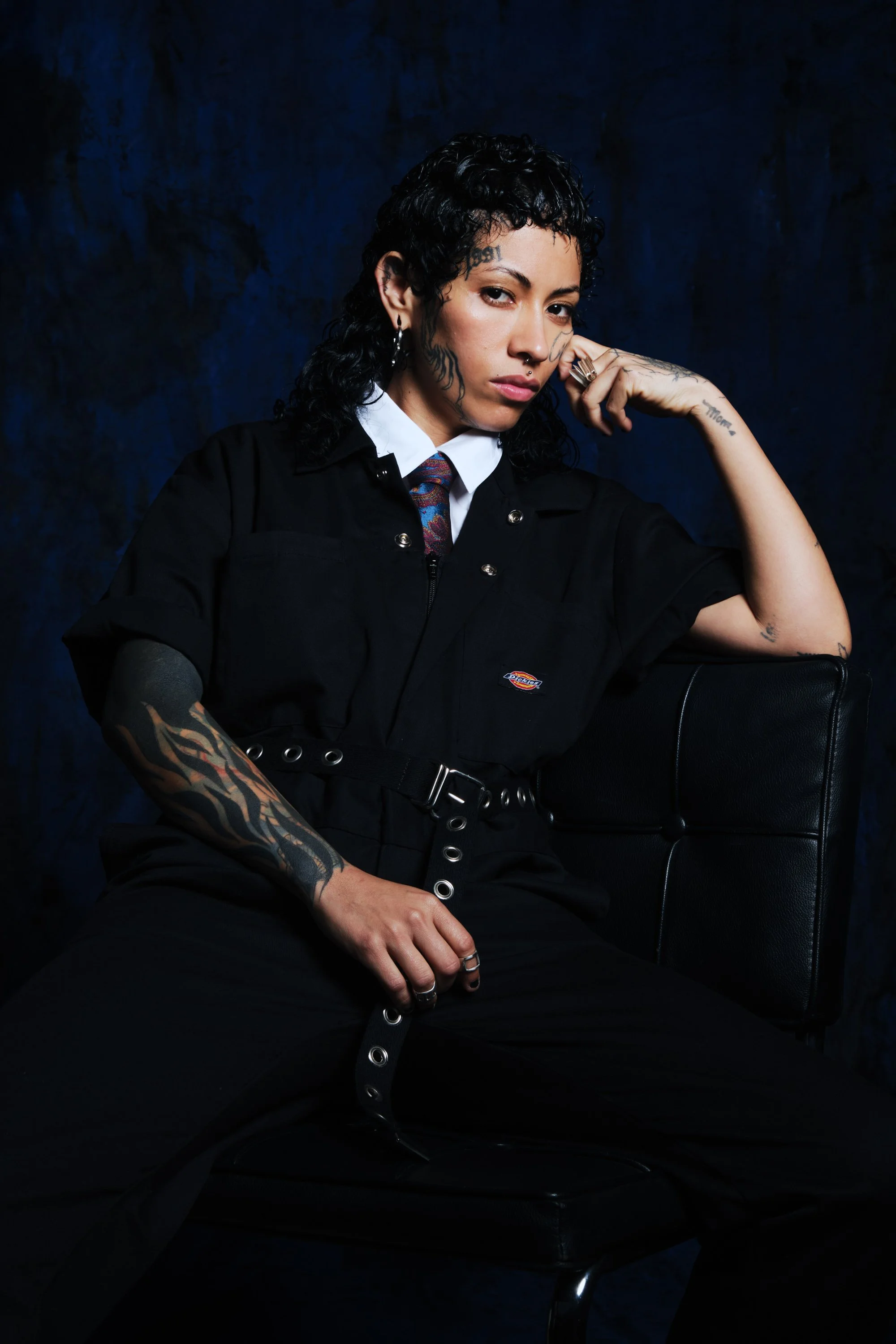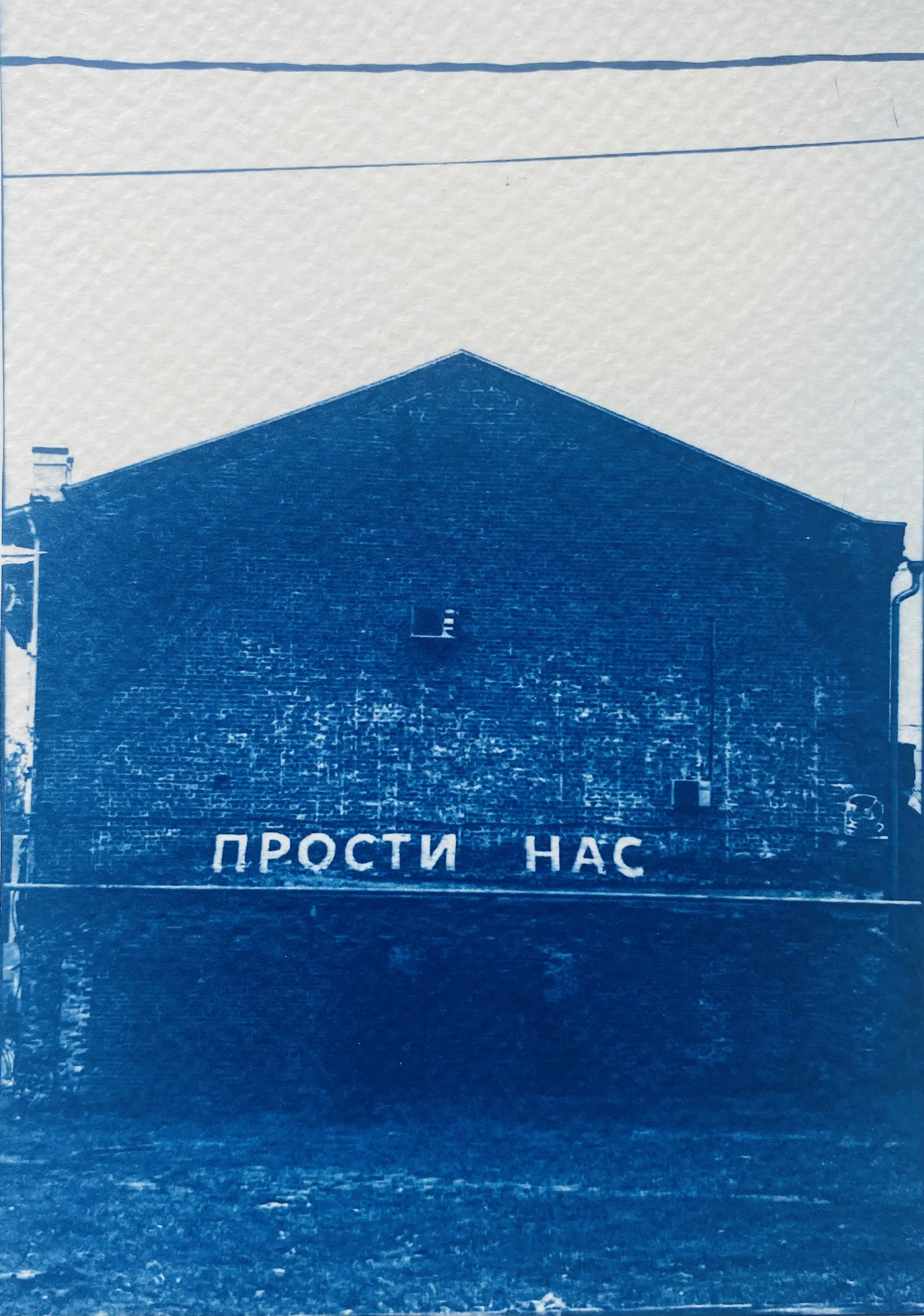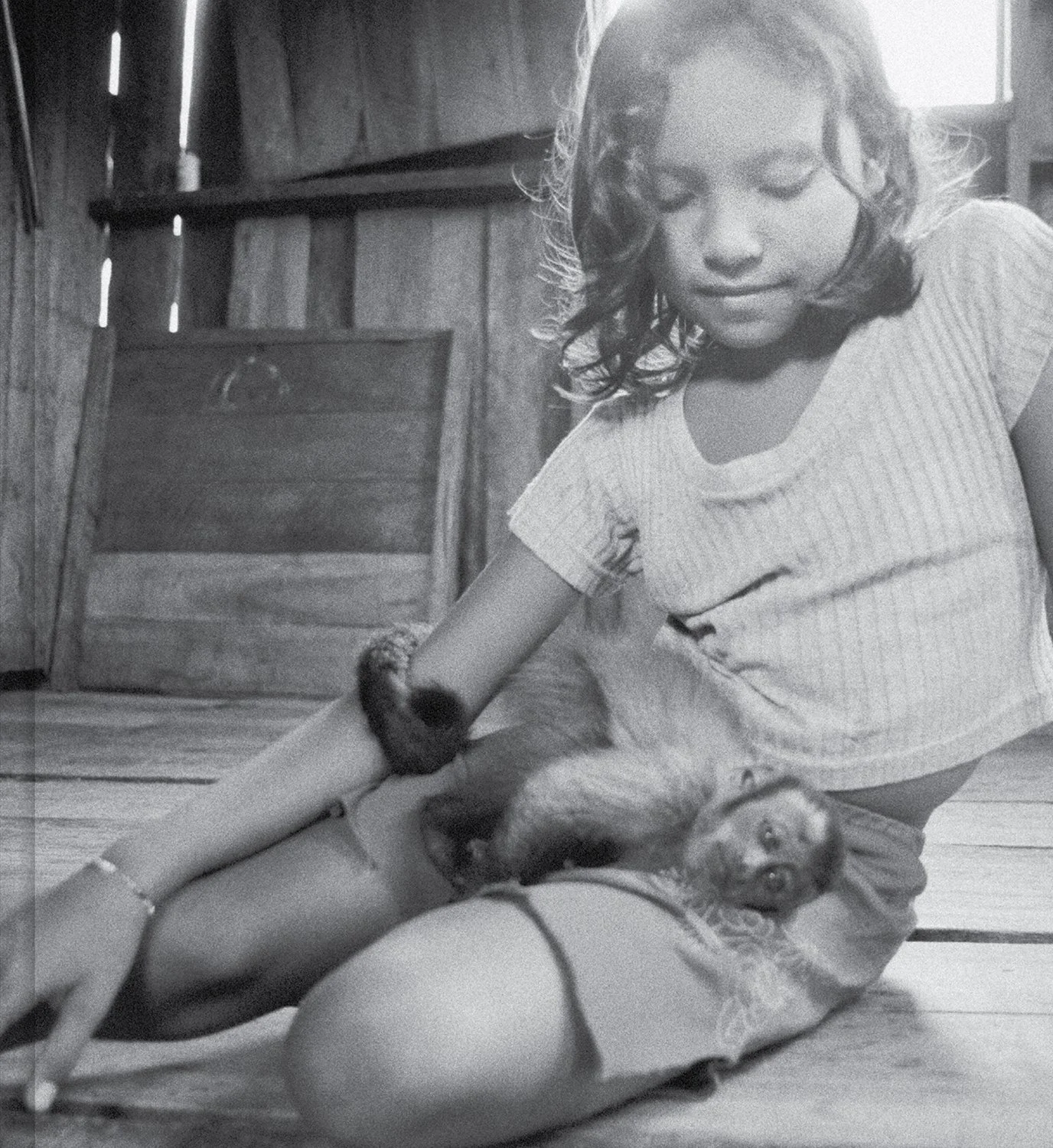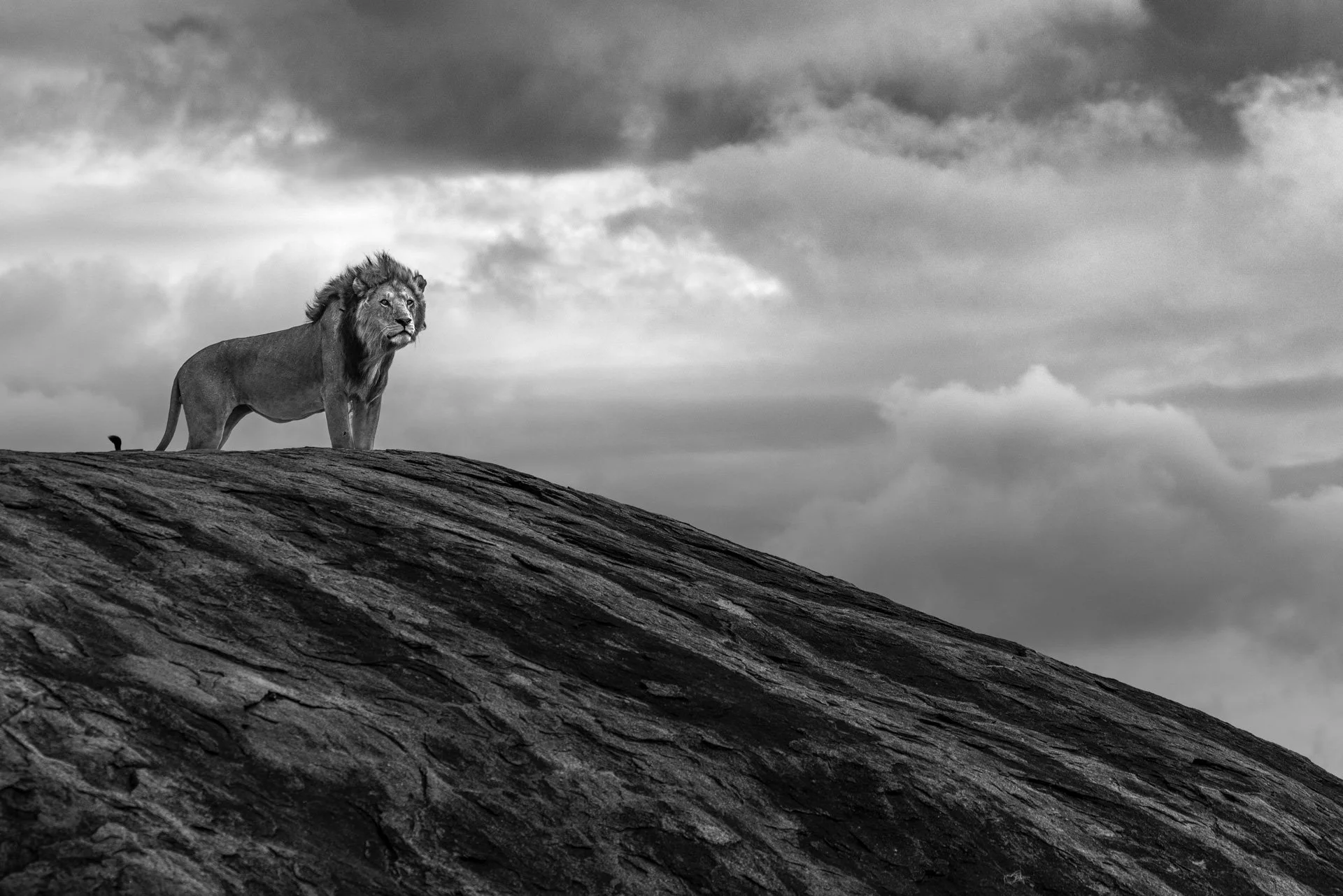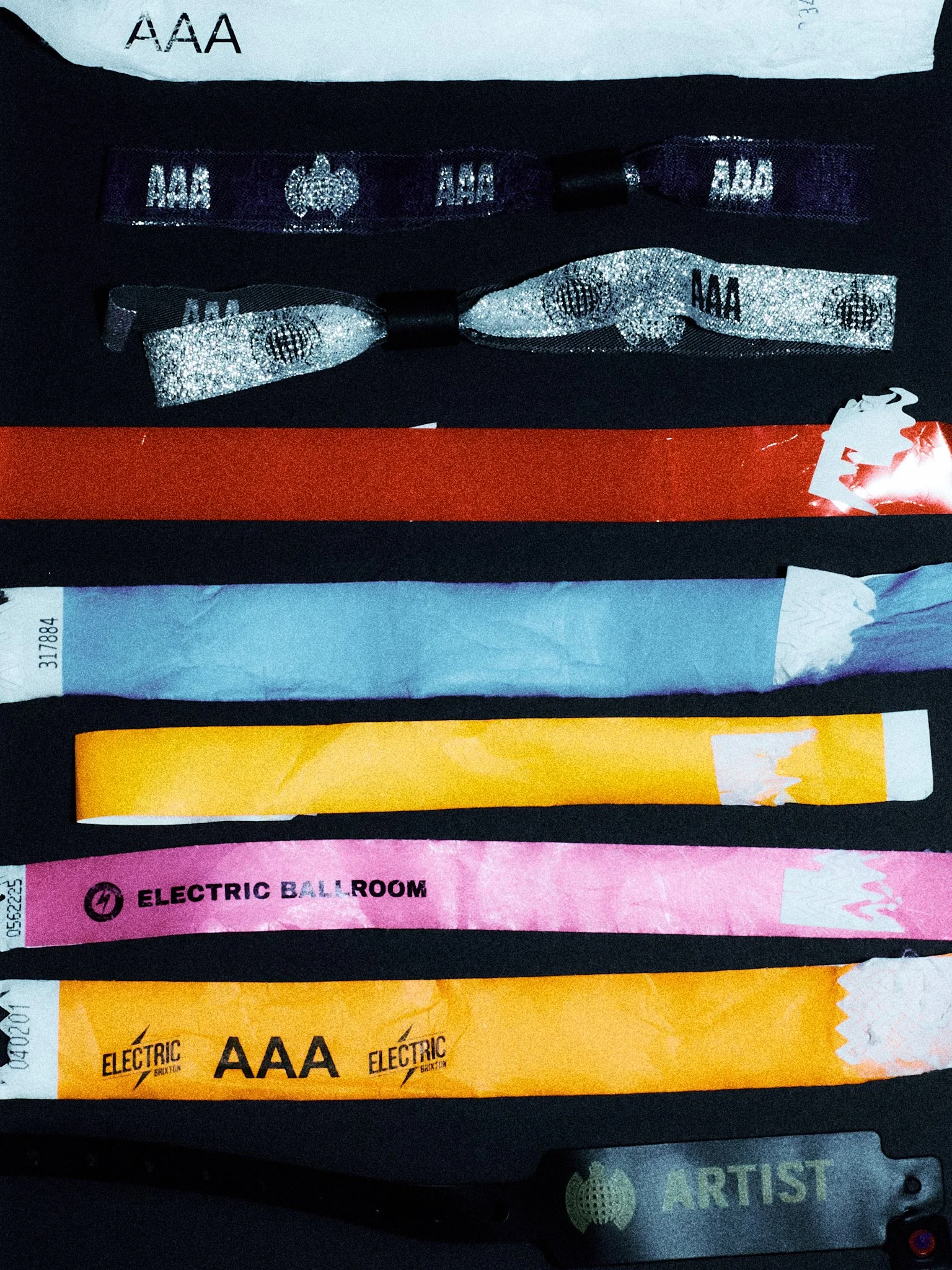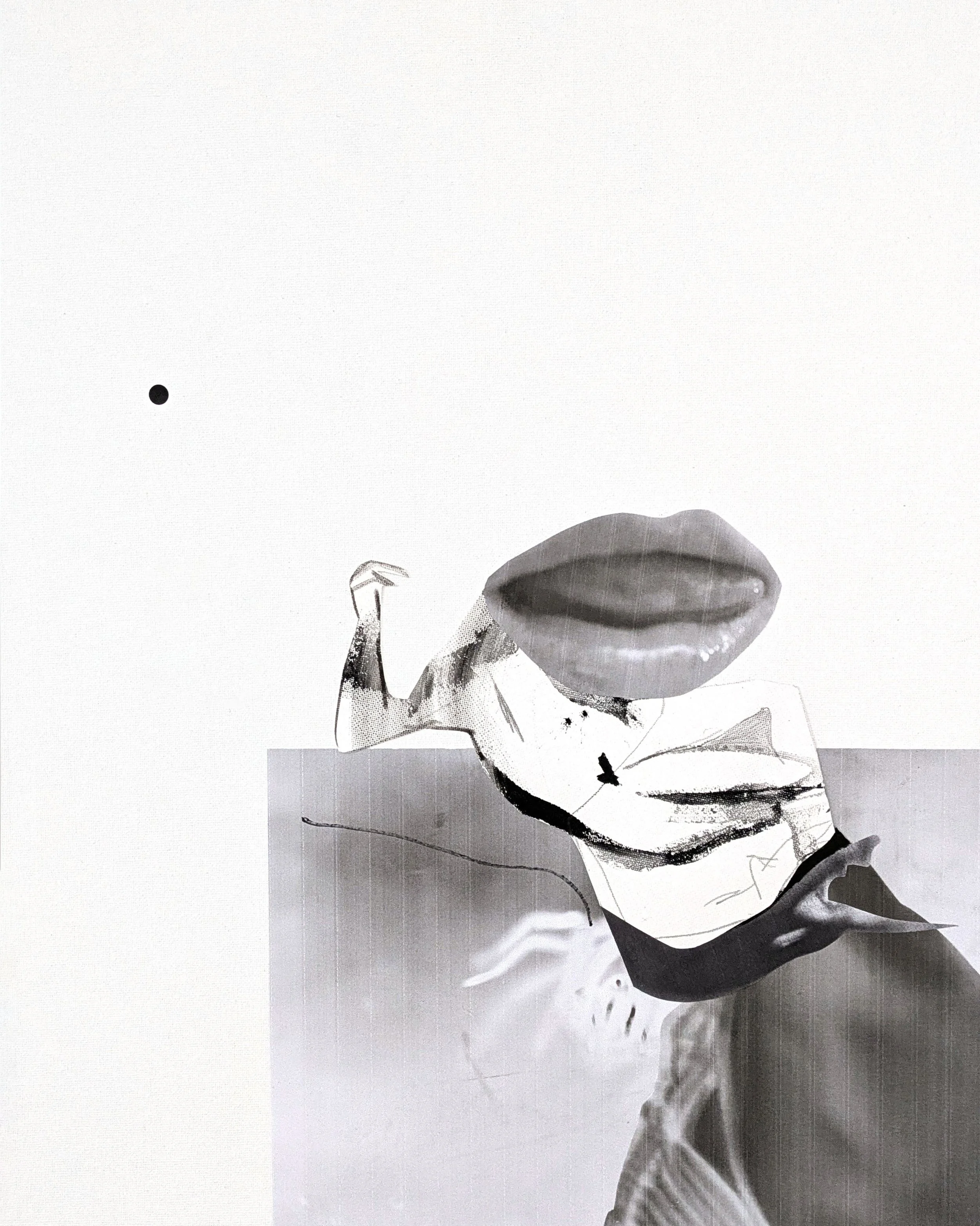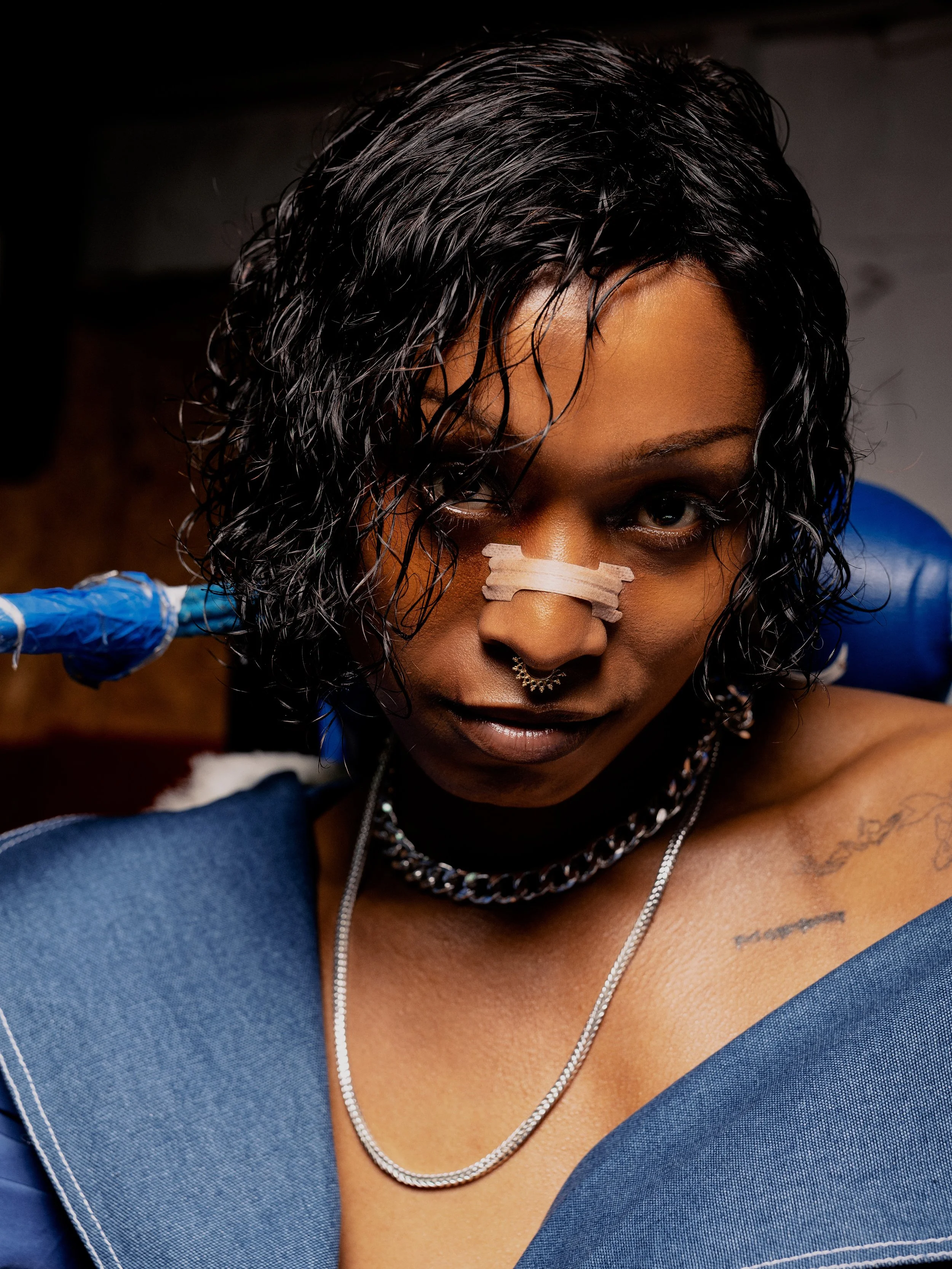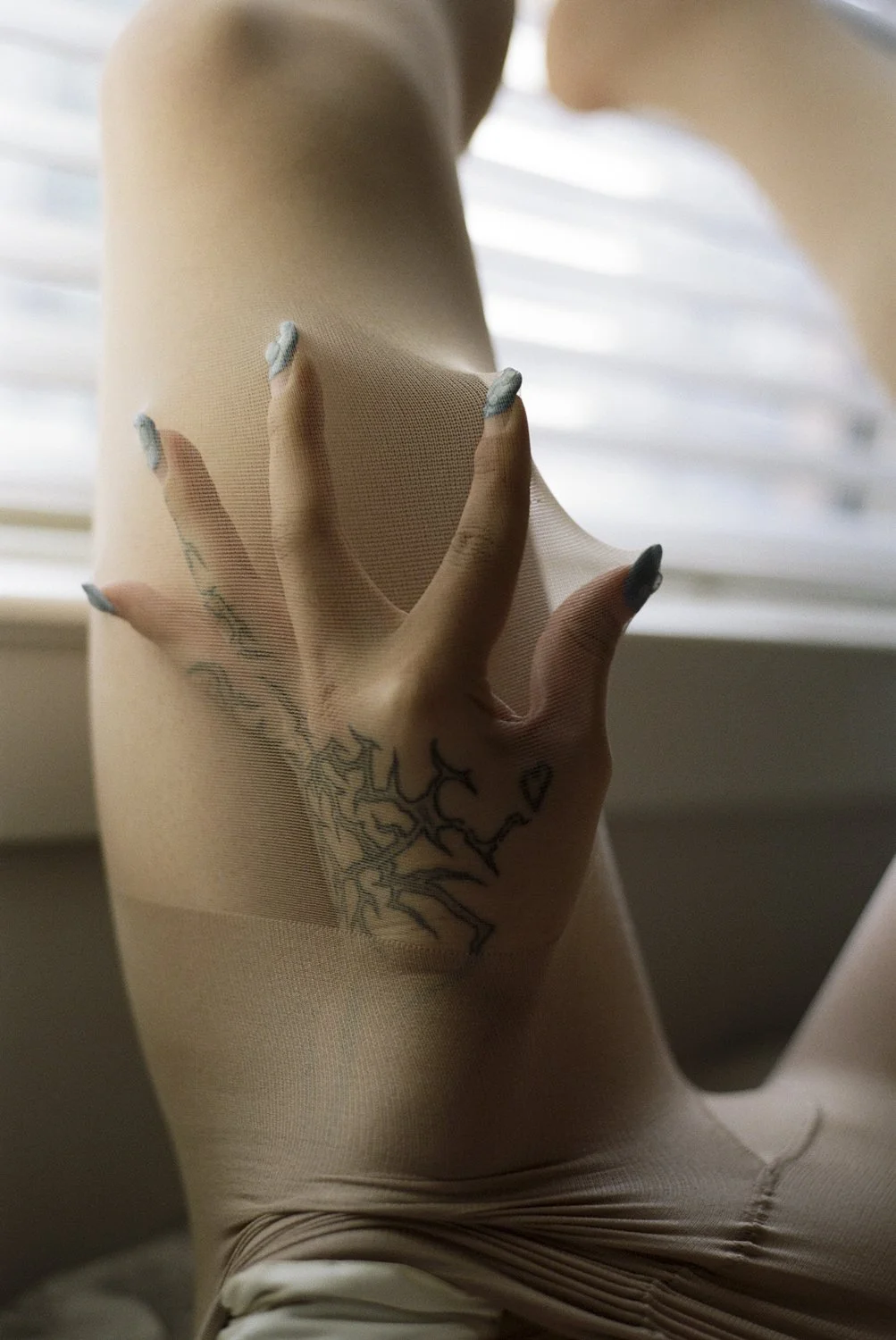Baltic ATM: Breaking Barriers
Baltic ATM, the annual programme from North London’s Baltic Studios, supports eight emerging musicians with pro-grade recording tools, mentoring and industry connections. The 2025 academy just ended and we spoke to studio founder Orlando Leopard and all eight artists to find out why initiatives like these are so important for young musicians.
Words Holly Wyche Photography bbcake & Lewis BarnesThe arts have become progressively inaccessible in the UK, and the effects of this are unsurprising. Charting musicians are six times more likely than the public to have attended private schools, and those in the arts from working class backgrounds have halved in the past 50 years. The experience, perspective and sounds that we’re likely to hear in music is narrowing, and we are all worse off for it. Baltic Studios in North London seeks to combat this.
Baltic has housed artists like Björk, Prince, Caroline Polachek among many others. But access to studio space and professional mixing and mastering is becoming almost entirely unavailable to those who would most benefit from it. The ‘Baltic ATM’ programme has been unofficially running since 2020 through independent funding, but recent support from the Arts Council England alongside multiple community partners has increased the scope of Baltic’s core mission to support the growth of immensely talented musicians like those featured. Whittled down from over 100 applicants, we spoke to Baltic’s 2025 cohort after the programme’s completion in early May. Each of the 8 musicians chosen are completely unique and bring something to the table I’ve not heard elsewhere: Charisse C, Céline Dessberg, Priscilla Toko, Töpia Adebayo, Azekel, Andro, Naima Adams, & Geo Aghinea.
Their passion and camaraderie are infectious. We were lucky enough to speak to the artists selected about their experiences with Baltic ATM and how their music developed during this opportunity.
Naima, Image ©LewisBarnes
“This has just reaffirmed that there are opportunities and people who do want to facilitate the creation of art and music, because in every other turn there seems to be some kind of obstacle or thing you have to pay for, or all these things where ultimately nothing's coming back your way. Like streaming as an example. You're putting all this in and then I can't even buy a coffee.”
Naima
Programmes like these are invaluable to artists. A single day recording in a professional studio in London can easily cost thousands of pounds, without even considering the cost of hiring engineers or the amount of time it would functionally take to record, mix and master a single track let alone an album.
“I just think that these kinds of programmes are life-changing.”
Céline
Céline, Image ©LewisBarnes
All of the artists featured have orbited the music industry for years in some capacity. Charisse was previously a music journalist and both Geo and Priscilla have been part of artist development schemes like the Roundhouse or Grounded Sounds. Other artists like Andro and Azekel have already collaborated with major musicians like Jungle and Gorillaz, respectively. Each of them evidently shows an unmissable potential that radiates from both their sound and clear understanding of what they’re trying to achieve. They are driven, tenacious and all have approaches to music that are fundamentally unique. Baltic has allowed them to explore exactly what their own sound is further, and their praise is unanimous.
“They never asked me what genre I was doing, or they never asked me anything to do with what I was going to bring into the space sonically. They just wanted to make sure I was comfortable. There are some producers I've worked with that’ve immediately assumed what I'm going to sound like and when they locked into that, the whole sound will lock into that. Whereas it was just like come as you are, and we'll just facilitate you being your best you.”
Töpia, Image @bbcake
The openness of Baltic’s support is obvious in how ambitious a lot of the music produced is. Geo is microtonally inclined and has recently released a single called Gynodioecious, named for a hermaphroditic plant which they musically chart the growth of. Töpia on the other hand actively rebels against committing herself to any genre, using jazz principles and a punk background in what she can only describe as a combination of Indie, Bossa Nova and Neo Soul. Céline’s work alternately has centred around incorporating the Mongolian Yatga into her French sound, and she describes the relationship she aspires to with her instrument as akin to Chet Baker’s relationship to his trumpet. There is little to no homogeneity between any of the music they make and what seems to connect them is that perspectives as developed as these can only come from those genuinely committed to their craft. Even above this, they’ve all had to develop against the odds without commercial backing or socio-economic privilege, two factors Baltic directly names in their mission statement as a major barrier for musicians, and what they aim to counteract.
Geo, Image @bbcake
“The amount of support I received is so invaluable. I would have never gotten this anywhere else. I could have never done this without this program, especially as an emerging artist.”
Geo
“My second single is quite different from what I've done before, and I would quite boldly say, is probably different from what's out there right now, especially with me being like a northern queer, brown artist, there's no one in the industry like me. It's almost an advantage, but also a disadvantage because a lot of people might listen to it and not really know what to make or do with this.”
Andro, Image @bbcake
Charisse, Image @bbcake
“I think I always say that my favourite artists are people that I describe as world builders. I've always hoped that my music would do the same as you listen to it.”
Charisse
Priscilla goes on to talk about her relationship to choirs and how the community aspect of this sound inspires her as much as the actual sonic qualities themselves, and I think that reflects the power of a programme like this beyond just the practical support it offers. When interviewed, almost all musicians laud other members of the studio like Evie Clark-Yospa, the inhouse engineer, and Digby Smith, mix and mastering engineer. They pose with the latter’s’ car together and joke in a way that shows how wholeheartedly they are in each other’s corner. These eight artists are moving further into the industry together because of an experience like this, inspiring each other at a time when the industry is becoming less and less human. The artist’s questions at the following industry panel reflect this unanimous concern, as their confidence turns more intrepid. Questions about the threat of AI and navigating digital algorithms enters conversations previously focused purely on their music, and the lived reality of any modern musician is sobering. The hustle of attempting to make it as a paid musician is antithetical to the unrestricted creativity that defines these musicians, and this is exactly why the artists in the room, and the opportunities Baltic has provided them are so important.
“I make content, and there have been a lot of tears and a lot of doubts. Because that's what I've been doing for a while, that kind of shapes my perception of everything else that I do, it's gonna cause me tears. I'm gonna be really upset and frustrated. But it'll work out.”
Priscilla
Priscilla, Image ©LewisBarnes
Getting selected for narrow playlists, posting Instagram reels and trend chasing is sadly now a major part of ‘making it’ as a musician. Baltic however, provides an antidote to this by selecting musicians as community-focused as the ones they’ve chosen, pushing them forward at a time where their originality is more of a hindrance than a help. Topia, Charisse and Priscilla all discuss how central community and physical space is to what drives them, whether that be through jam bands or how sacred dance floors are. This sentiment is so important and it’s inspiring to see it nurtured in a studio like this.
“On a wider level, I think that each time we do something like this, we understand our role a little bit better. To me, Baltic is an incubator of new music culture, and by that, I mean being a facilitator of great music through space, equipment and community, but also that we are trying to do our part to change the culture within the music industry so that it’s more equitable. Everyone should have access to spaces where they can make their best music.”
Orlando Leopard. Co-Founder
About Baltic
Baltic is home to three recording studios in East London. These studios are the birthplace of recordings from artists including Björk, Skepta, Sampha, and Arctic Monkeys. Each studio is lovingly outfitted with the very best microphones, instruments, and outboard, the result of an enduring obsession with modern and vintage equipment.
To learn more about Baltic and ATM, visit their website or follow them on Instagram.
